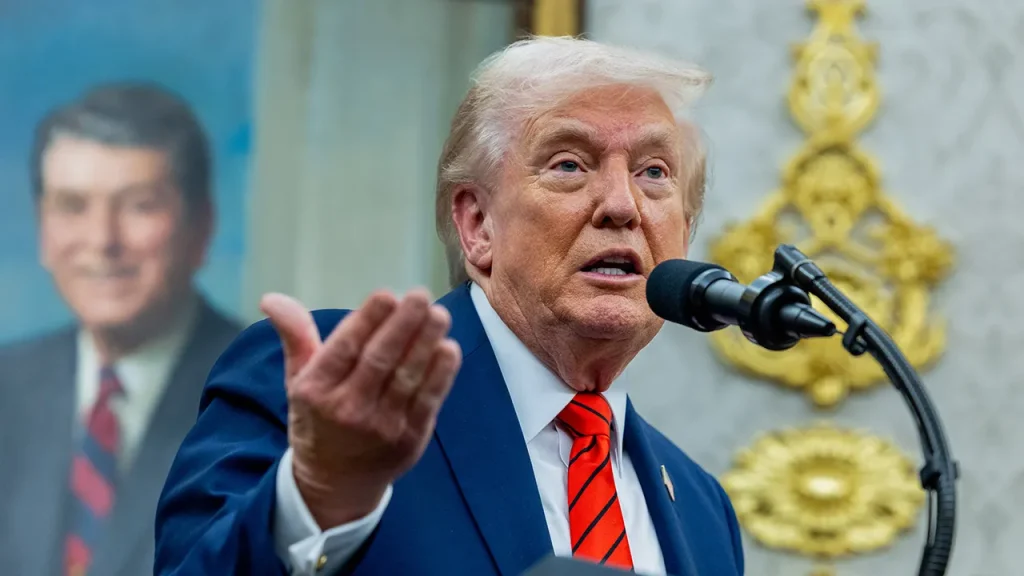Trump’s Health Report: Doctor Declares President in “Excellent Overall Health”
In a brief update from Walter Reed National Military Medical Center, President Donald Trump’s physician has reported that the Commander-in-Chief is in “excellent overall health” following a routine medical evaluation on Friday. The succinct memorandum, while lacking specific details about the examination, offers reassurance about the president’s physical condition. This positive health assessment comes as part of the regular medical monitoring that all presidents undergo during their time in office, ensuring their fitness to handle the demanding responsibilities of leading the nation.
Presidential health has long been a matter of public interest and scrutiny, with Americans expecting transparency about the wellbeing of their elected leaders. These routine examinations at Walter Reed, a premier military medical facility that has served numerous presidents, typically include comprehensive physical assessments, laboratory tests, and consultations with specialists as needed. While the current statement is brief, it follows the tradition of presidential physicians providing updates to the American public about the health status of the nation’s highest officeholder, though the level of detail disclosed has varied considerably across administrations throughout American history.
The declaration of “excellent overall health” suggests that no significant medical concerns were identified during the president’s follow-up evaluation. Such medical assessments typically examine various aspects of health including cardiovascular function, metabolic health, cognitive abilities, and other key indicators of wellbeing. For a president whose energetic public persona and busy schedule demand considerable stamina, this positive medical assessment likely provides both personal reassurance and public confirmation of his capacity to continue fulfilling his presidential duties without health-related limitations.
Presidential health updates, while ostensibly routine medical matters, inevitably take on political dimensions in our media-saturated environment. Supporters may point to such positive health reports as evidence of the president’s vigor and capacity to lead, while critics might question the comprehensiveness of the assessment or seek more detailed information. The brief nature of this particular health update leaves room for continued speculation, though the official medical determination from Walter Reed—an institution with impeccable credentials—carries significant weight in establishing the factual record regarding the president’s physical condition.
As this story continues to develop, additional details may emerge about specific health metrics, recommendations from the medical team, or any preventive measures advised. Presidential physicals often become more thoroughly documented in subsequent days, as comprehensive reports are finalized and additional information is deemed appropriate for public release. The American public has grown accustomed to receiving more detailed health information about their presidents than was common in earlier eras, reflecting both modern expectations of transparency and the recognition that a president’s physical wellbeing is relevant to their ability to govern effectively.
For now, the straightforward assessment of “excellent overall health” provides the bottom line that most Americans seek from such medical evaluations—an authoritative determination that the president’s physical condition appears sound and without concerning issues that might interfere with his ability to carry out the demands of the presidency. While the brevity of the current statement leaves many specific health details undisclosed, the fundamental message is one of medical normalcy and fitness for office, as certified by military medical professionals with the expertise and ethical obligation to provide accurate health assessments regardless of political considerations.














